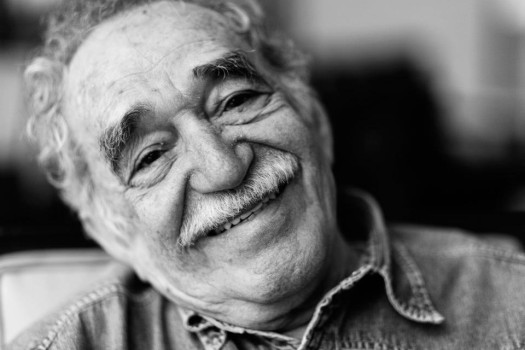
(Photo Credit: Google Images)
The world is mourning the loss of Nobel Laureate Gabriel García Márquez, who died of pneumonia at age 87. Márquez rose to worldwide fame with his novel One Hundred Years of Solitude, which ushered in an era of Spanish language literature. Jonathan Kandell of the New York Times writes:
“Mr. García Márquez was a master of the literary genre known as magical realism, in which the miraculous and the real converge. In his novels and stories, storms rage for years, flowers drift from the skies, tyrants survive for centuries, priests levitate and corpses fail to decompose. And, more plausibly, lovers rekindle their passion after a half-century apart.
Magical realism, he said, sprang from Latin America’s history of vicious dictators and romantic revolutionaries, of long years of hunger, illness and violence. In accepting his Nobel, Mr. García Márquez said: ‘Poets and beggars, musicians and prophets, warriors and scoundrels, all creatures of that unbridled reality, we have had to ask but little of imagination. For our crucial problem has been a lack of conventional means to render our lives believable.’
Like many Latin American intellectuals and artists, Mr. García Márquez felt impelled to speak out on the political issues of his day. He viewed the world from a left-wing perspective, bitterly opposing Gen. Augusto Pinochet, the right-wing Chilean dictator, and unswervingly supporting Fidel Castro in Cuba. Mr. Castro became such a close friend that Mr. García Márquez showed him drafts of his unpublished books.”
Richard Lea and Joe Tuckman of The Guardian write:
“Barack Obama said the world had lost ‘one of its greatest visionary writers’, adding that he cherished an inscribed copy of One Hundred Years of Solitude, presented to him by the author on a visit to Mexico. ‘I offer my thoughts to his family and friends, whom I hope take solace in the fact that Gabo’s work will live on for generations to come.’
Colombian president Juan Manuel Santos said yesterday via Twitter: ‘A thousand years of solitude and sadness at the death of the greatest Colombian of all time. Solidarity and condolences to his wife and family … Such giants never die.'”
One Hundred Years of Solitude was an instant bestseller, with the first edition of 8,000 copies selling out within a week of its publication in 1967. Hailed by the Chilean poet Pablo Neruda as “perhaps the greatest revelation in the Spanish language since Don Quixote of Cervantes”, One Hundred Years of Solitude went on to win literary prizes in Italy, France, Venezuela and beyond, appearing in more than 30 languages and selling more than 30 million copies around the world.
Márquez’s works include The Autumn of the Patriarch, The Chronicle of a Death Foretold and Love in the Time of Cholera, which was first published in 1985 and made into a film in 2007.
Márquez is survived by his wife Mercedes and two sons, Rodrigo and Gonzalo. He was 87.
Read more at the New York Times or The Guardian.








